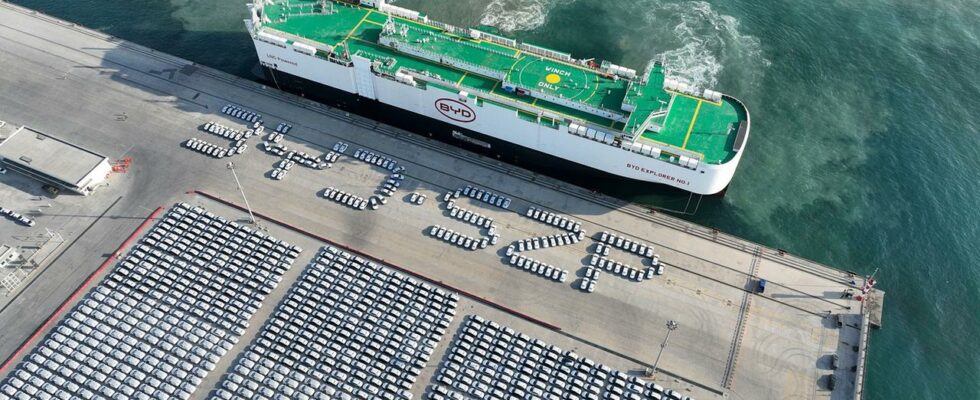The finance ministers and central bankers of the G7 meet in Italy. The focus is on the trade conflict with China. How do financial professionals see the situation and what do they expect from the G7?
When representatives of the leading industrial nations, the G7, meet in Italy this week, the issue of punitive tariffs may have moved up the agenda. Because the situation is getting worse: From August 1st of this year, the USA wants to impose punitive tariffs, some of which are horrendous, on products from China – including steel, aluminum, minerals, semiconductors, solar cells and electric cars. The fact that the EU is currently examining so-called anti-dumping tariffs for Chinese electric cars was interpreted in some places as a warning shot.
It has now become public knowledge that the Chinese are considering imposing a 25 percent punitive tariff on imported vehicles with large engines in response. If that were to happen, says Holger Görg from the Kiel Institute for the World Economy (IfW), something could happen that people have been warning about for weeks: “That this warning shot could very quickly escalate into a major trade war.”
Battle for the world markets
Trade disputes between the US and China are nothing new, but many experts see the US’s latest move as taking things a step further. For example, the US already had import tariffs on Chinese electric cars, but these are now set to be raised from 25 percent to 100 percent.
Like the Europeans, the United States complains that the Chinese government heavily subsidizes certain industries and companies and is now flooding the global market with unrivaled cheap products – to the detriment of others.
It seems to be nothing less than a battle for the world markets. “For years, China was a supplier to the world. China’s role has changed from supplier to competitor,” says Carsten Mumm, chief economist at the private bank Donner & Reuschel. It is no surprise that the trade war is particularly evident in cars, says Mumm. “Automobility was a hobbyhorse of German and American industry for years, and China is preparing to play a significant role here.”
Car manufacturers don’t want to know anything about punitive tariffs
But dealing with punitive tariffs is dangerous. If the Chinese actually charge a 25 percent surcharge for imported large cars – for example for high-horsepower luxury cars – then that would hit European manufacturers very hard. German car manufacturers in particular have recently been among the biggest losers in the DAX.
It is hardly surprising that car manufacturers do not want to know anything about punitive tariffs. At the BMW Annual General Meeting a few days ago, CEO Oliver Zipse said: “We are committed to open markets and free trade. Protectionism sets a spiral in motion. Tariffs lead to new tariffs, isolation instead of cooperation.”
What can the G7 countries achieve?
Carsten Brzeski from ING also warns against punitive tariffs against China – especially the EU, because Europe is even more dependent on China than the USA. “We need raw materials from China, we need photovoltaic systems from China. And if we now come up with strong punitive tariffs, the Chinese will react again and then that will again be at the expense of our own economic growth,” said the analyst.
But what can the G7 countries actually achieve? IfW researcher Görg has one hope: “Ideally, Europe would coordinate with the USA and the other large nations and develop a proposal on how to deal with China.” However, he believes it is very unlikely that this will actually happen.
Heidi Radvilas, HR, tagesschau, May 22, 2024 6:24 p.m

